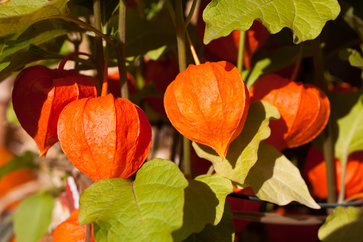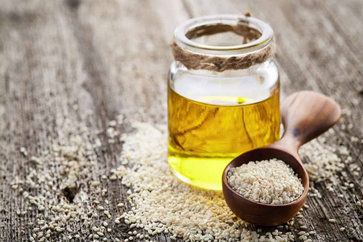Ayurvedic Hair Oil: Which Fortify, Flourish And Strength Roots
Ayurvedic hair oils are herbal formulations used in Ayurveda, a traditional system of medicine originating in India. These oils are specifically designed to promote hair health, nourish the scalp, and address various hair-related concerns. 
They are made from a blend of natural ingredients, including herbs, roots, fruits, and essential oils, which are known for their therapeutic properties.
Ayurvedic hair oils are believed to balance the doshas (Vata, Pitta, and Kapha) in the body, as per Ayurvedic principles. Different oils are formulated to address specific hair issues such as hair loss, dandruff, premature graying, dryness, and dullness. The ingredients commonly found in Ayurvedic hair oils include:
- Bhringraj (Eclipta alba): Promotes hair growth and reduces hair fall.
- Amla (Indian Gooseberry): Strengthens hair follicles, prevents graying, and adds shine.
- Brahmi (Bacopa monnieri): Nourishes the scalp, enhances hair growth, and reduces dandruff.
- Neem (Azadirachta indica): Antibacterial and antifungal properties, help control dandruff and scalp infections.
- Hibiscus (Hibiscus rosa-sinensis): Conditions the hair, prevents split ends, and stimulates hair growth.
- Coconut oil: Deeply moisturizes and nourishes the hair, preventing dryness and breakage.
- Almond oil: Rich in vitamins and minerals, promotes hair growth, and adds luster.
- Sesame oil: Strengthens hair, nourishes the scalp, and reduces hair fall.
To use Ayurvedic hair oil, warm a small amount in your hands and massage it gently into the scalp and hair roots. Leave it on for at least 30 minutes or overnight for maximum benefit, and then wash it off with mild shampoo. Regular use of Ayurvedic hair oil can help improve the overall health and appearance of your hair.
It’s important to note that while Ayurvedic hair oils can be beneficial for many people, individual results may vary. If you have any specific hair or scalp conditions, it’s always a good idea to consult with a healthcare professional or an Ayurvedic practitioner before using any new products.
Ayurvedic Hair Oil Benefits
Ayurvedic hair oils offer a range of benefits for hair and scalp health. Here are some potential benefits of using Ayurvedic hair oils:
1. Hair growth promotion
Ayurvedic hair oils are often formulated with herbs like Bhringraj, Amla, Brahmi, and Hibiscus, which are known for their hair-stimulating properties. These herbs can help promote hair growth, strengthen hair follicles, and reduce hair fall.
2. Scalp nourishment
The natural ingredients in Ayurvedic hair oils provide essential nutrients to the scalp, helping to nourish and revitalize it. This can improve the overall health of the scalp, leading to healthier hair growth.
3. Moisturization and hydration
Many Ayurvedic hair oils contain nourishing oils like coconut oil, almond oil, and sesame oil. These oils help to moisturize and hydrate the hair and scalp, preventing dryness and reducing issues like dandruff and itchiness.
4. Hair conditioning and shine
Ayurvedic hair oils can help improve the texture and appearance of the hair by providing deep conditioning. They can make the hair softer, smoother, and more manageable, while also adding a natural shine to it.
5. Reduced hair damage
Regular use of Ayurvedic hair oils can help protect the hair from damage caused by environmental factors, heat styling, and chemical treatments. The oils form a protective layer on the hair strands, minimizing breakage and split ends.
6. Stress relief
Ayurvedic hair oils often contain soothing and calming herbs like Brahmi and Neem, which can help alleviate stress and tension when massaged into the scalp. This can contribute to a sense of relaxation and well-being.
7. Improved scalp health
Ayurvedic hair oils with antibacterial and antifungal properties, such as Neem oil, can help combat scalp infections, dandruff, and other scalp conditions. They can also help balance the scalp’s pH levels and maintain its natural microbial balance.
Note: The effectiveness of Ayurvedic hair oils can vary from person to person, and results may take time to manifest. Consistency and regular usage are key to experiencing the potential benefits of these oils.
If you have specific hair or scalp concerns, it’s advisable to consult with an Ayurvedic practitioner or a healthcare professional for personalized advice.
Ayurvedic Hair Oil Ingredients
Ayurvedic hair oils are formulated using a combination of natural ingredients, including herbs, oils, and other plant-based substances. Here are some common ingredients found in Ayurvedic hair oils:
1. Bhringraj (Eclipta alba): Known as the “king of herbs for hair,” it promotes hair growth, reduces hair fall, and helps prevent premature graying.
2. Amla (Indian Gooseberry): Rich in vitamin C, it strengthens hair follicles, nourishes the scalp, prevents dandruff, and adds shine to the hair.
3. Brahmi (Bacopa monnieri): Helps improve blood circulation to the scalp, nourishes hair roots, and enhances hair growth. It also has a calming effect on the mind.
4. Neem (Azadirachta indica): Possesses antibacterial and antifungal properties, helps control dandruff, scalp infections, and promotes a healthy scalp.
5. Hibiscus (Hibiscus rosa-sinensis): Conditions the hair, prevents dryness, stimulates hair growth, and helps maintain the natural color of the hair.
6. Jatamansi (Nardostachys jatamansi): Has a calming effect on the scalp, promotes hair growth, and helps control hair fall.
7. Henna (Lawsonia inermis): Conditions the hair, adds a natural reddish tint, and helps strengthen the hair strands.
8. Fenugreek (Trigonella foenum-graecum): Conditions the hair, adds shine, and helps control dandruff.
9. Japa (Hibiscus rosa-sinensis): Also known as Red Hibiscus, it strengthens the hair roots, stimulates hair growth, and helps prevent split ends.
10. Methi (Fenugreek seeds): Rich in proteins and nutrients, it nourishes the hair, promotes hair growth, and helps control dandruff.
12. Shikakai (Acacia concinna): A natural cleanser, it helps remove dirt and excess oil from the scalp, promotes hair growth, and adds shine.
13. Ashwagandha (Withania somnifera): Known for its rejuvenating properties, it helps reduce stress, promotes hair growth, and strengthens the hair follicles.
14. Jatamansi (Nardostachys jatamansi): Helps promote hair growth, strengthens the hair, and soothes the scalp.
15. Curry leaves (Murraya koenigii): Nourishes the hair, stimulates hair growth, and helps control premature graying.
16. Triphala: A combination of three fruits – Amalaki (Indian Gooseberry), Bibhitaki (Terminalia bellirica), and Haritaki (Terminalia chebula). It helps nourish the scalp, promotes hair growth, and prevents hair fall.
Carrier Oils For Hair Growth
These ingredients, along with various carrier oils like olive oil, castor oil, or jojoba oil, are used in different combinations to create Ayurvedic hair oils tailored for specific hair concerns and goals.
1. Coconut oil: Deeply moisturizes and nourishes the hair, prevents protein loss, and adds strength and shine.
2. Sesame oil: Helps strengthen the hair, reduces hair fall, and provides nourishment to the scalp.
3. Almond oil: Rich in vitamins and minerals, it nourishes the hair, adds shine, and promotes hair growth.
4. Rosemary oil: Stimulates hair follicles, improves circulation and helps combat dandruff.
5. Bringraj oil: An herbal oil infused with Bhringraj herb, it helps reduce hair fall, promotes hair growth, and prevents premature graying.
6. Lemon oil: Helps control dandruff, balances the scalp’s pH level, and adds a refreshing fragrance to the oil.
7. Rose oil: Soothes the scalp, balances oil production, and adds a pleasant aroma to the hair oil.
It’s important to note that the actual ingredients in Ayurvedic hair oils can vary depending on the brand and specific formulation. It’s always a good idea to check the product label or consult with an Ayurvedic practitioner to understand the ingredients and their benefits in a particular hair oil.
Ayurvedic Hair Oil Names
There are numerous Ayurvedic hair oil brands available in the market, each offering its unique formulations. Here are some popular Ayurvedic hair oil names:
1. Baidyanath Mahabhringraj Hair Oil
2. Kesh King Ayurvedic Hair Oil
3. Dabur Amla Hair Oil
4. Patanjali Kesh Kanti Hair Oil
5. Khadi Ayurvedic Amla Hair Oil
6. Forest Essentials Ayurvedic Herb Enriched Head Massage Oil
7. Himalaya Herbals Anti-Hair Fall Hair Oil
8. Ayur Herbal Coconut Hair Oil
9. Trichup Ayurvedic Hair Oil
10. Vasu Uva Insta Shiny Ayurvedic Hair Oil
11. Jovees Amla & Bael Hair Tonic
12. Kama Ayurveda Bringadi Intensive Hair Treatment Oil
13. Indulekha Bringha Hair Oil
14. Biotique Bio Bhringraj Therapeutic Hair Oil
15. Emami Amla Plus Herbal Hair Oil
These are just a few examples of Ayurvedic hair oil brands available in the market. It’s important to choose a brand and product that suits your specific hair needs and preferences.
Additionally, it’s recommended to check the ingredients, and reviews, and consult with a healthcare professional or Ayurvedic practitioner if needed before selecting an Ayurvedic hair oil.
Ayurvedic Hair Oil Preparation At Home
Here’s a simple recipe for making Ayurvedic hair oil at home using a few common herbs and oils:
Ayurvedic hair oil recipe No 1
Ingredients:
- 1/2 cup Coconut oil
- 1 tablespoon Amla powder (Indian Gooseberry)
- 1 tablespoon Bhringraj powder
- 1 tablespoon Brahmi powder
- 1 tablespoon Neem powder
- 1 teaspoon Fenugreek (Methi) seeds
Instructions:
- In a small saucepan, heat the coconut oil over low heat until it melts.
- Add the Amla powder, Bhringraj powder, Brahmi powder, Neem powder, and Fenugreek seeds to the melted coconut oil.
- Stir the mixture well to ensure that the powders are thoroughly combined with the oil.
- Continue heating the mixture over low heat for about 10-15 minutes, stirring occasionally. This will allow the herbs to infuse their properties into the oil.
- Remove the saucepan from the heat and let the mixture cool down.
- Once cooled, strain the oil using a fine mesh strainer or cheesecloth to remove any solid particles.
- Transfer the strained oil to a clean, airtight bottle or container.
- Your homemade Ayurvedic hair oil is ready to use.
You can apply this oil to your hair and scalp, gently massaging it in circular motions. Leave it on for at least 30 minutes or overnight for better results, and then wash it off with a mild shampoo.
Note: This is a basic recipe, and you can modify it according to your preferences and hair needs. You can also experiment with other Ayurvedic herbs and oils to create a customized hair oil blend.
Ayurvedic hair oil recipe No 2
Ingredients:
- 1/2 cup Coconut oil
- 2 tablespoons Brahmi powder
- 2 tablespoons Bhringraj powder
- 1 tablespoon Amla powder
- 1 tablespoon Hibiscus powder
- 1 tablespoon Neem powder
- 1 tablespoon Fenugreek (Methi) powder
- 1 teaspoon Rosemary essential oil (optional)
Instructions:
- In a small saucepan, heat the coconut oil over low heat until it melts.
- Add the Brahmi powder, Bhringraj powder, Amla powder, Hibiscus powder, Neem powder, and Fenugreek powder to the melted coconut oil.
- Stir well to ensure all the powders are thoroughly mixed with the oil.
- Continue heating the mixture over low heat for about 15-20 minutes, stirring occasionally. This allows the herbs to infuse their properties into the oil.
- Remove the saucepan from the heat and let the mixture cool down.
- Once cooled, strain the oil using a fine mesh strainer or cheesecloth to remove any solid particles.
- If desired, add rosemary essential oil to the strained oil for its additional benefits and fragrance. Stir well to combine.
- Transfer the oil to a clean, airtight bottle or container.
Apply the homemade Ayurvedic hair oil to your scalp and hair, massaging it gently. Leave it on for at least 30 minutes or overnight, and then wash it off with a mild shampoo.
Feel free to adjust the quantities of the ingredients based on your preferences and hair needs. Additionally, you can explore other Ayurvedic herbs like Jatamansi, Curry leaves, or Shikakai, and incorporate them into the recipe according to your requirements.
Ayurvedic hair oil recipe No 3
Ingredients:
- 1/2 cup Coconut oil
- 2 tablespoons Amla powder
- 2 tablespoons Bhringraj powder
- 1 tablespoon Brahmi powder
- 1 tablespoon Hibiscus powder
- 1 tablespoon Neem powder
- 1 tablespoon Fenugreek (Methi) powder
- 1 tablespoon Curry leaves powder
- 1 teaspoon Rosemary essential oil (optional)
Instructions:
- In a small saucepan, heat the coconut oil over low heat until it liquefies.
- Add the Amla powder, Bhringraj powder, Brahmi powder, Hibiscus powder, Neem powder, Fenugreek powder, and Curry leaves powder to the melted coconut oil.
- Stir well to ensure all the powders are thoroughly combined with the oil.
- Continue heating the mixture over low heat for about 15-20 minutes, stirring occasionally. This allows the herbs to infuse their properties into the oil.
- Remove the saucepan from the heat and let the mixture cool down.
- Once cooled, strain the oil using a fine mesh strainer or cheesecloth to remove any solid particles.
- If desired, add rosemary essential oil to the strained oil for its additional benefits and aroma. Stir well to combine.
- Transfer the oil to a clean, airtight bottle or container.
To use the Ayurvedic hair oil, massage it onto your scalp and hair, ensuring even distribution. Leave it on for at least 30 minutes or overnight, and then wash it off with a gentle shampoo.
Feel free to modify the quantities of the ingredients based on your preferences and hair needs. You can also experiment with other Ayurvedic herbs and oils such as Jatamansi, Shikakai, or Japa (Red Hibiscus) to customize the recipe further.
Which Ayurvedic Oil Is Best For Hair?
There is no definitive answer to which Ayurvedic hair oil is the best, as it ultimately depends on individual hair needs and preferences. Different Ayurvedic hair oils offer various benefits and cater to specific concerns. Here are a few popular Ayurvedic hair oils known for their effectiveness:
1. Bhringraj Oil
Bhringraj oil is often considered the “king of herbs for hair” due to its potent hair-strengthening and hair growth-promoting properties. It helps reduce hair fall, nourishes the scalp, and promotes healthy hair growth.
2. Amla Hair Oil
Amla (Indian Gooseberry) oil is rich in vitamin C and antioxidants. It helps strengthen hair follicles, promotes hair growth, and prevents premature graying. Amla oil also nourishes and conditions the hair, leaving it soft and shiny.
3. Brahmi Oil
Brahmi oil is known for its calming and cooling properties. It helps promote hair growth, nourishes the scalp, and supports overall scalp health. Brahmi oil is often used to reduce hair fall and improve hair thickness.
4. Neem Oil
Neem oil is valued for its antibacterial, antifungal, and soothing properties. It helps combat scalp infections, dandruff, and itching. Neem oil can be beneficial for maintaining a healthy scalp and promoting hair growth.
5. Jatamansi Oil
Jatamansi oil has calming and grounding properties, which can help reduce stress and promote relaxation. It is known for its ability to nourish the hair, strengthen hair follicles, and prevent hair fall.
6. Coconut Oil
While not specific to Ayurveda, coconut oil is widely used for hair care. It moisturizes the hair, prevents protein loss, and adds shine. Coconut oil is often used as a carrier oil in Ayurvedic hair oil formulations.
It’s important to choose an Ayurvedic hair oil that addresses your specific hair concerns and aligns with your hair type. It may be helpful to consult with an Ayurvedic practitioner or a hair care professional to determine the most suitable Ayurvedic hair oil for you.


























